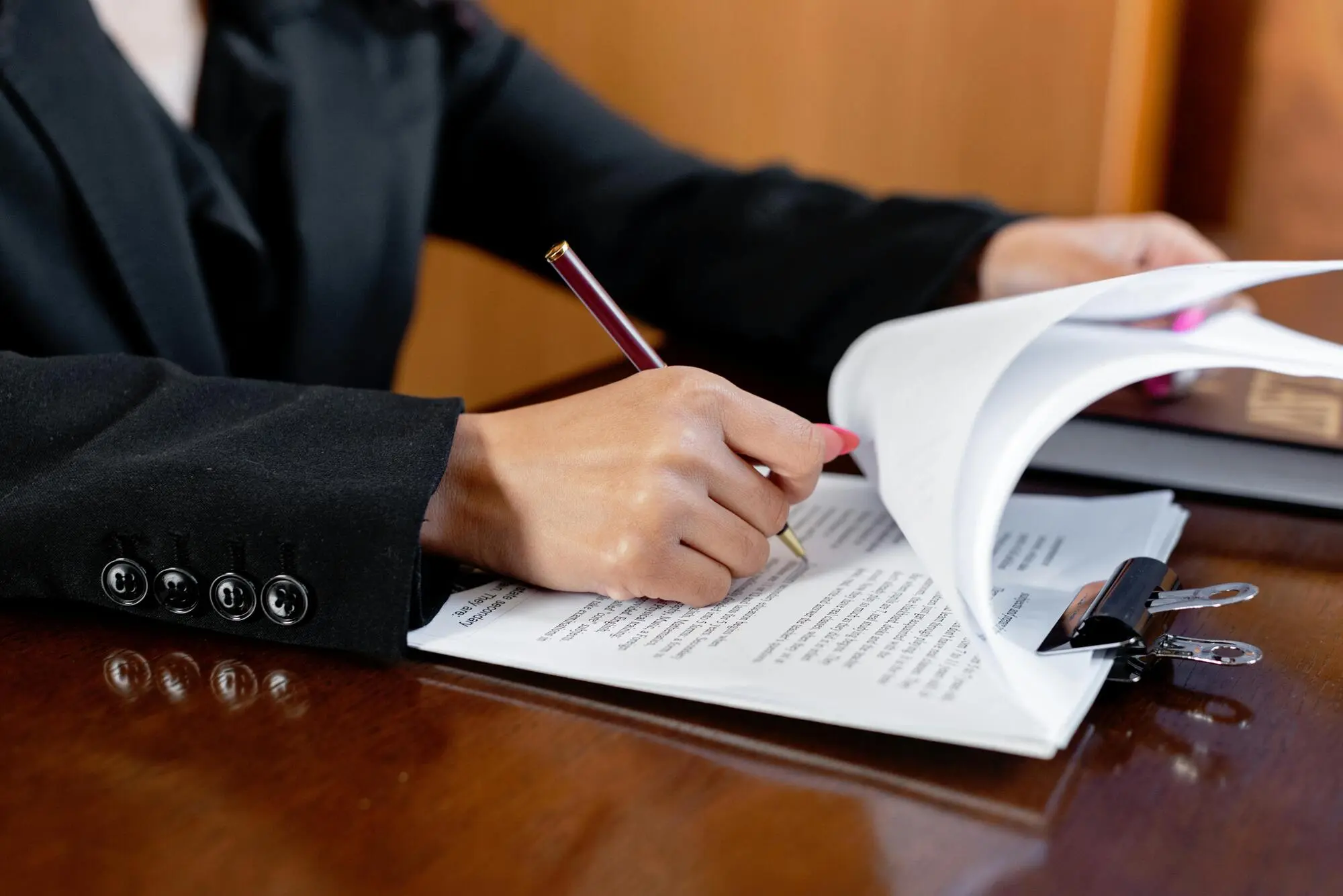Need Help With Foreign Trusts?
When it comes to asset protection, you'll want to set up a secure, legally durable trust that can't be compromised by courts, creditors, and other possible opponents. But as a high-net-worth individual, you aren't limited to setting up a trust in your home jurisdiction, like the United States. In fact, the whole world is your proverbial oyster.
So, what about foreign trusts? If you’re not sure whether you can trust these vehicles or how they work, keep reading – we’ll explain just what a foreign trust is and why it could be the best instrument for your asset protection needs when set up with the assistance of Dominion.
What is a “Foreign” Trust?
A foreign trust is any trust vehicle set up in a jurisdiction other than your home or residential jurisdiction. Say you’re a US citizen. The United States is your home jurisdiction. Therefore, any trust you set up in a country other than the United States is foreign or “offshore.”
When you set up a foreign trust, that vehicle is subject to the foreign jurisdiction’s estate planning laws and legal precedent regarding trusts, court orders, etc. Imagine you are a US citizen and set up a trust in the Cook Islands. That foreign trust is beholden to Cook Islands laws, not US laws.
Aside from that, a foreign trust can do all the same things as a domestic trust. You can use it to store wealth, like liquid capital or property, in perpetuity or for a specific purpose, like future distributions to your grandchildren.
Is an Offshore Trust Illegal?
No, although many people think so because of pop culture and associations between criminal activity and the term "offshore."
An offshore trust is just a foreign trust, and a foreign trust is not necessarily illegal if you set it up correctly. But that’s something of a given – you can’t create a foreign trust without the assistance of a licensed attorney, so every foreign trust you set up is by definition legal.
Offshore trusts aren’t used for illegal activities (at least, not by people who want to keep their money!). Instead, offshore trusts can be used for:
- Estate planning purposes
- Asset protection
- Wealth distribution
- And more
If you set up an offshore asset protection trust with knowledgeable experts, like the legal and financial professionals we employ at Dominion, you'll set up a fully legal, highly protective instrument that can keep your estate safe for decades to come.
Not only will it be fully legal, but it will be so legally airtight that no court, regardless of the desire of the judge or lawyers, will be able to breach it.
How Does a Foreign Trust Work?
A foreign trust works just like a standard or domestic trust, with the same basic components and key players:
- There’s you, the grantor or settlor. The grantor of the trust names the other members of the trust and is responsible for setting it up/putting assets or money into the trust
- The trustee, who manages the trust and handles any distributions. The trustee can be a person or a law firm (and, if you are interested in asset protection, it should be a knowledgeable third party you don't have a personal connection to)
- The beneficiary(s). Foreign trust beneficiaries are those who receive assets or other distributions from the trust. You can be a beneficiary, as can other family members, your spouse, etc.
However, foreign trusts by their nature do have different laws and regulations that may govern how they are managed, how they are set up, the fees you need to pay, and so on. So while setting up a foreign trust isn’t exactly the same thing as creating a domestic trust, you can trust your foreign offshore asset protection trust vehicle to accomplish your goals, whatever those may be.
To make sure your foreign trust works properly and to ensure that it helps you achieve your objectives, you need to set it up with experienced foreign trust setup specialists like Dominion.
Why Use a Foreign Trust?
There are lots of reasons why high-net-worth individuals like business owners and medical professionals use foreign trusts. You could benefit from these advantages as well.
Legal Defense
Because foreign trusts are managed and subject to the laws and statutes of different jurisdictions than your own, legal attacks from your home jurisdiction will not be as effective against them.
Imagine that, as a surgeon, you are sued by the family of a former patient. The family can try to file a lawsuit against you. If they are successful, they may come after your money, estate, or other assets. But if those assets are stored in an offshore or foreign asset protection trust, they won’t be able to claim them.
US courts don’t have any authority to order that foreign asset protection trust to fork over your wealth. If your trust is set up properly and managed by the right trustee, any requests made by the US courts will be as effective as foam darts fired at a brick wall.
That said, your trust must be set up and managed correctly for this to be the case. It is possible for certain legal attacks to circumvent the jurisdictional barriers mentioned above.
For instance, if you set up a foreign asset protection trust but use a bank that has branches in your home jurisdiction, a court could theoretically use its authority in your local bank to gain access to your trust in the same bank in a foreign jurisdiction.
This just highlights the necessity of working with experts who know the ins and outs of asset protection laws, jurisdictions, and so on. The last thing you want is for your foreign asset protection trust to not be as defensive as possible.
Creditor Protection
In addition to legal protection, foreign trusts can provide significant creditor protection. Just like US courts don’t have any jurisdiction or authority over foreign trusts (in most cases), US creditors also don’t necessarily have the same powers or authority over foreign trusts that they exercise over US citizens and banks.
Again, imagine that you are a high-net-worth individual like a business owner. A creditor comes after you because of your net worth. If your assets are safely stored in a foreign trust, that creditor can't easily or at all access those assets, even if they have a reason to do so.
In theory, a creditor could try to hire lawyers in the same jurisdiction as your foreign trust. However, this is costly and time-consuming, and it may not be successful.
Many aggressive or predatory creditors oftentimes move on in favor of chasing different targets when they discover high-net-worth individuals like you have their assets safely tucked away in an offshore asset protection trust.
Tax Reduction
Offshore or foreign trusts don’t allow you to escape all taxes, of course. But it is possible that some foreign trusts can mitigate or reduce the estate taxes you and your beneficiaries have to pay, especially when it comes to inheritances.
For instance, you can put wealth, property, and real estate into a foreign trust with the intention of preserving that wealth for your future grandchildren.
Then, after you pass away, your grandchildren receive those assets through distributions, but without as many taxes whittling away at the total net amount.
In this way, foreign trusts can play a similar role in estate planning as domestic trusts, just with more complexity and, oftentimes, with more benefits.
Foreign trusts can also give you momentous asset protection. Placing assets in a jurisdiction that comes with strong creditor protection laws enables you to keep your wealth safe from potential lawsuits or claims.
Economic Insulation
Lastly, foreign trusts may provide your estate and wealth with some measure of economic insulation. The worldwide economy is fairly interconnected, so it’s not truly possible for you to sequester your wealth in a foreign jurisdiction and expect it to be unaffected by something like a global market crash.
At the same time, assets stored in a foreign trust may not be subject to the same economic upheavals or ups and downs as assets stored in a domestic trust.
For instance, if you have assets stored in a foreign trust, they may not be as affected as the same money you have stored in your US bank account during a minor recession.
With so many different use cases for foreign trusts, there's no reason not to consider making one as a high-net-worth individual, especially if you want to set your estate up for success in the coming decades.
Foreign Trust vs. Domestic Trust
Still not quite sure what distinguishes foreign trusts? You can understand foreign trusts a little better by comparing them to their domestic counterparts.
Ease of Setup
Foreign trusts are more difficult to set up than domestic trusts in terms of paperwork and legal complexities. But don’t take this to mean that it’s so difficult you shouldn’t do it!
Just like with other financial vehicles and legal plans, having the right experts at your side can significantly streamline the process and remove huge burdens from your shoulders. When you work with Dominion, you’ll tell us your goals and let us handle the legwork.
Foreign trusts are tougher to set up because the attorneys preparing the paperwork have to consider the laws and jurisdictional statutes for both your home jurisdiction and the offshore jurisdiction. They also have to have an in-depth understanding of the foreign nation’s laws and various case precedents.
However, remember that the complexity is a benefit in terms of asset protection purposes. The additional complexity and layers of legal defense between your assets and potential attackers make it harder for lawyers, creditors, and others to get to your wealth.
In contrast with foreign trusts, setting up a domestic trust is pretty straightforward. In most cases, you can set up a basic estate planning domestic trust in a matter of days or weeks with a licensed attorney.
Ultimately, these are simpler instruments and aren’t meant for the comprehensive and multilayered asset protection strategies we create for our clients at Dominion.
Jurisdictional Vulnerabilities
In addition, foreign trusts aren’t the same as domestic trusts in terms of their jurisdictional vulnerabilities (or lack thereof).
When you set up a US trust, for example, that trust is completely subject to the whims and the rules of local courts. If a US judge orders you to open your trust and take your assets out, or if they order you to do something else with your trust, you’ll be hard-pressed to ignore them.
An offshore trust is not vulnerable to US courts because it is held in a completely different jurisdiction. However, that trust might be vulnerable to courts in the same jurisdiction. For instance, a Cayman Islands trust does have to abide by rules and regulations from the Cayman government.
Therefore, when you set up a foreign trust, your lawyers must consider all the different ways that national laws, case precedents, and international statutes interact with each other.
A certain type of foreign trust might be more durable against legal inquests from your home jurisdiction than another simply because of the relationships that the two countries have or how their federal governments interact.
Once more, this can seem like a lot to wrap your head around and might even be complex for you to tackle. But that’s why you don’t need to do it alone. Instead, you’ll hire premium asset protection specialists at Dominion to do it all for you.
With our decades of expertise, we’re the best people to make sure you set up your trust in the ideal jurisdiction for your needs.
Get in Touch with Dominion Today
All in all, a foreign trust offers a deeper, more resilient defense against creditors, lawsuits, ex-spouses, and other potential claims to your wealth and estate. That's doubly true when you set it up with the assistance of Dominion.
That’s because Dominion specializes in offshore asset protection trusts and their management. Over the years, we’ve helped hundreds of clients protect their wealth with individualized, robust asset protection plans that leave nothing to chance and guarantee long-term wealth sustainability.
You’ve worked hard for your money. We think you should be able to keep it. Contact us today to learn how.




































.jpeg)


























